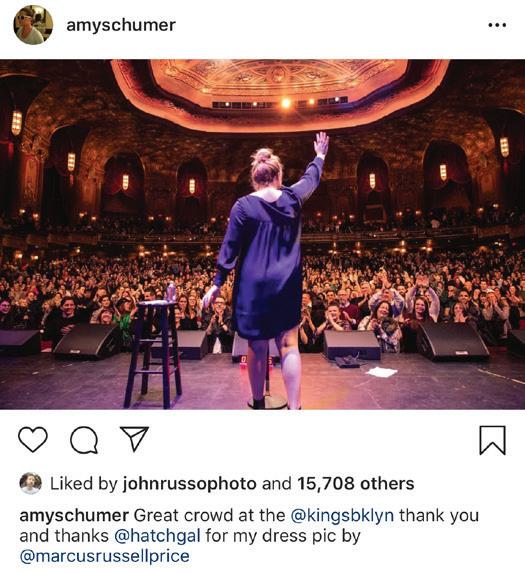
2 minute read
WHAT’S THE POINT
Madeline squeezes in a few final matters
Women will never be as good at being men as men are, so women are at a disadvantage if male behavior is the norm. A CEO recently posted a picture of herself with the word “female” crossed out to declare that she was done with cutesy “girl boss” and “shepreneur” tags because all it does is allow investors to see companies founded by women in a separate class. Thousands of comments debated whether getting rid of the tag actually decreases the bias against female traits.

feministbingo.tumblr.com
Maybe it’s easier for white women. Being a Black-owned business is an important tag when potential customers are looking to show support. Until it’s no longer a novelty, labels can be inspiring.
Unconscious bias can’t begin to be addressed without acknowledging racism, sexism, and past grievances. Hearing it’s [Whatever] Month does make me want to roll my eyes, but those months are times to learn more.
Similar to the way some people need to know they are better than fastfood workers because fastfood workers don’t make a living wage, some people need to know their status is secure because they are male. I think the goal is to create a society where everyone is secure as themselves.


Pregnant comics are a blessing.
BUT BE FEMININE?
At some point I realized pretty people can get away with anything, but watching montages of DIY hair transformations is the epitome of that. You have neon green hair? You chopped tiny bangs? Now you shaved it all off? Sure, you’re fair skinned with big eyes and symmetrical features. You can do that. Or maybe it’s just that they are so enthusiastically committed to those tiny bangs. Authenticity also makes everything more forgivable.
Women who are breaking norms seem to always retain some standard feminine quality. On Page 8, it’s Jes Baker’s hair and makeup. Rosie the Riveter has huge eyelashes. Professional female athletes seem to have runway-ready bodies.
How do we get to a point of raising girls (and boys) who are comfortable with themselves just as they are? How do we get them to prioritize the way they treat other people and take pride in that? —MV


In March 2014, after Target seemed to use the same clipping path on a number of images deleting chunks of arms and awkward thigh gaps, people decided the Black model's arms had also been stretched in Photoshop.
PHOTOSHOP IS NOT THE ENEMY
My first year in New York, I interned a lot of places. Company-wide lunches for HFMUS interns introduced different parts of the publishing process. When the photo studio showed changes they made to a well story in ELLE, one table was horrifi ed. “They only do that to the cover, right?” I laughed out loud. At InStyle, we made so many Imaging requests. Celebrities looked so greasy and terrible in tiny party photos. But everything—everything—needs to be at least color-corrected. Legislation to ban Photoshop is pointless.

These skinny thighs were part of the attempt at realistic beauty standards following the clipping path fails.

This headline with this picture is ridiculous.



A study found male CEOs with deeper voices manage larger companies, make more money, and stay in their jobs for longer. There weren’t enough female CEOs for a sample to study.

Chipotle and e.l.f. share values and a target audience in their attempt to entertain and seduce customers. Producing original hit tunes and immersion experiences, e.l.f. is more than a makeup company.

Almost every ad on Madeline’s phone tells her she can do 7-minute workouts and target her specific metabolism to lose 40 pounds instantly...










